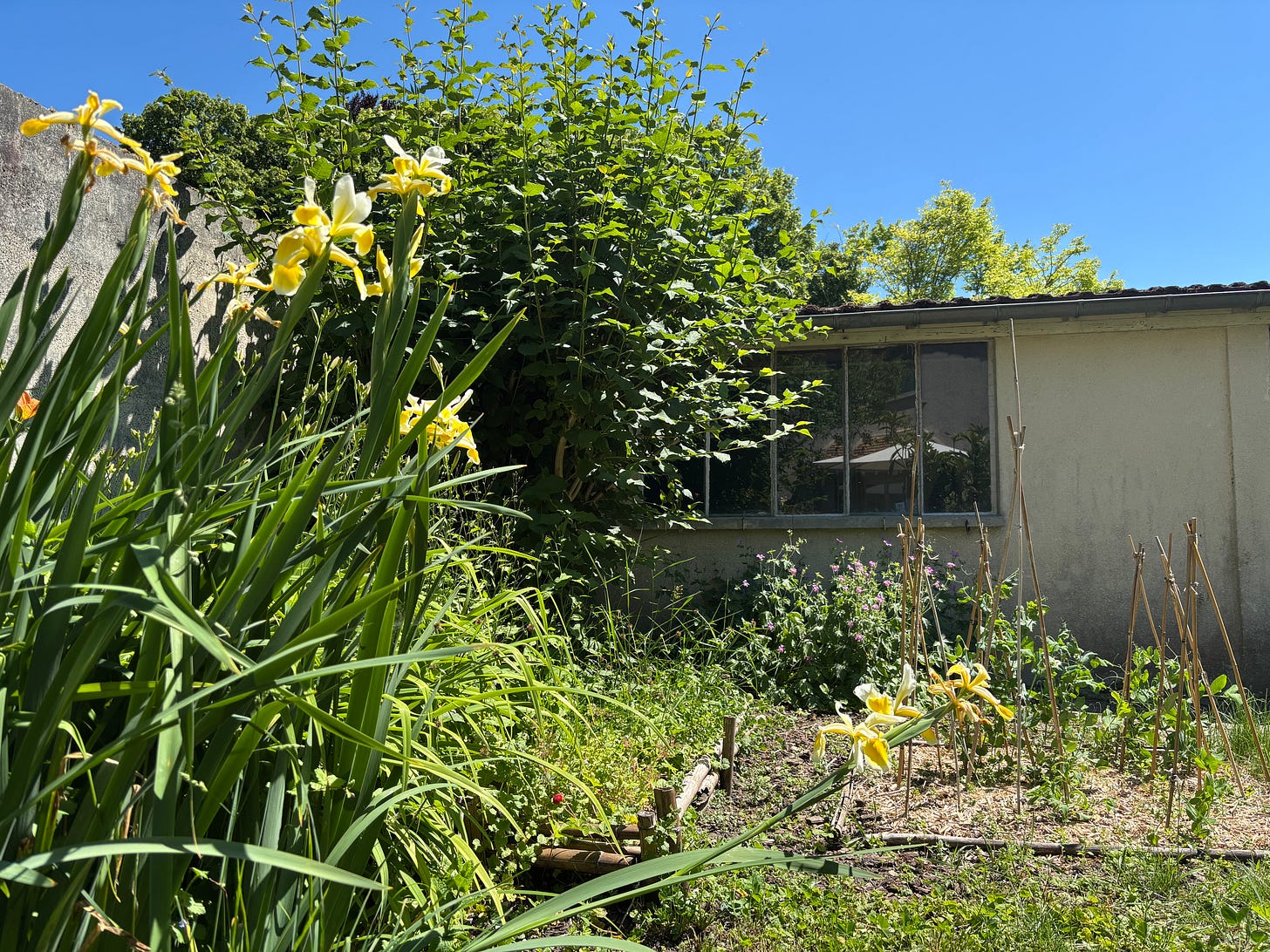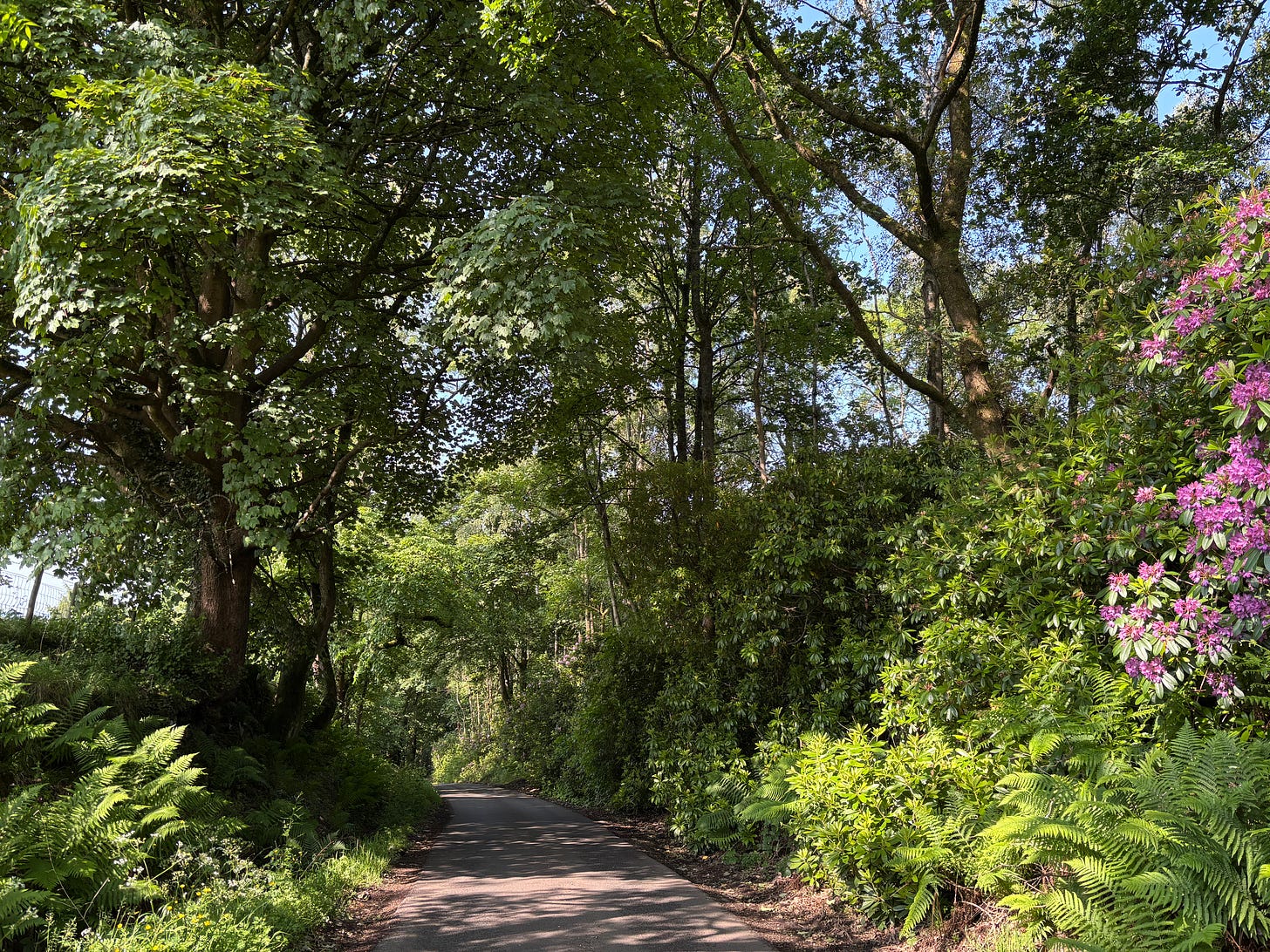I’ve been intending, meaning, attempting to write the final part of my mini-essay series about the Establishment and its others (about new and alternative canons, traditions and processes of canonisations, for and by marginalised humans and/or centring the nonhuman other, should you be interested by this still-nonexistent text) since February sometime. In some ways, I’ve seen publishing essays on here as a way of bridging the gap between academic research and general public debate. In other ways, it’s just something I’m interested in and want to share. Seen a third way, it’s part of a drive to be productive that has been inculcated in me, despite my inherent (is anything inherent?) suspicion about productivity and its uses in deciding who is expendable, who is exploitable and who has value.
Publish or perish. If you’ve had any proximity to academia, at least in the arts, humanities or social sciences in the twenty-first century, you will have heard this joyful alliterative catchphrase. I’d like to preface what I am going to say by pointing out that I very much believe in the importance of research, of developing knowledge, of encouraging debate, and now more than ever, critical thought. I like to hope that my research has value, that my published work is readable, that my conference papers enter into some kind of conversation. Otherwise I would not have even tried. I may be the bookish type, but I am also pretty chatty, some would say loquacious, at times even vaguely polemical. Academia has of course had problems with elitism and exclusion of huge numbers (and types) of people, some of which attempts have been made to rectify: it still remains difficult to get a foothold beyond undergraduate level if you don’t have at least a middling financial background, and I would wager that other types of exclusion remain rife at least in some institutions or departments. Nonetheless, I strongly believe in its importance, and I find it in many ways an inspiring milieu that gives sparks of optimism and creates paths (or at least the possibility of paths) towards possible, livable, even better, futures. I believe in the importance of rigour.
The problem I have really comes down to productivism, which of course comes down to money. The fact is, higher education and research is woefully underfunded (with the exception of some fields which are deemed directly useful at a given point in time, or clearly moneteraily quantifiable - often in hard sciences, technology or econonmics; none of which I have any wish to do down here - but they are not the only fields with value). Culture, the arts, social sciences, they all actually do generate economic value, but often indirectly. I hate to put it that way, but perhaps it does need to be stated. Economic and financial value are not – shockingly - the only forms of value and the reduction of human (and perhaps even all terrestrial) activity to measuring value in these terms is the root cause of the vast majority of the problems the world is facing today - starting with climate change, going through geopolitical instability to food price inflation to the specific starting point for this rant-as-essay (there’s a poem coming, I promise), job insecurity.
So, there are not enough jobs. Fewer and fewer jobs. Fewer and fewer stable, ‘permanent’ contracts. Permanent and temporary workers have to do more work and more kinds of work (bringing in income and accomplishing vast amounts of admin as well as producing ‘world-leading’ research and high quality teaching), teach more students, produce more research, in better ranked publications, more often. You’ve probably heard about this, perhaps in passing, scanning a newspaper article, or hearing about a friend-of-a-friend in a similar situation to me. There are many of us. I won’t further labour the point. I knew all of this before I started my PhD. So I published, I presented, I organised, I networked. I’ve kept doing so since I completed my PhD. I’ve applied for jobs in places I’d like to work and live, and in places I think I could find a way to make work. I’ve applied for academic-adjacent jobs, and jobs far from adjacent to academia. I’ve freelanced. I’ve enjoyed some of this. A lot of the work I’ve produced for, in parallel to, and since my PhD interests me deeply, and I believe could contribute to better understanding of the world, or just simply tiny parts of it, in and through literature. I would have liked to have more time to do this, and to do it properly, and not just to make sure my CV is competitive. I don’t really know how to do things be halves, maybe it’s a protestant culture’s work ethic, maybe it’s just me. I’ve been tired almost non stop for years. This is ‘normal’, apparently. This is also not limited to my field, I know. Which circles us back to productivity = value. So I haven’t finished my mini-essay series yet, just as I haven’t secured a job. Where does that leave my rigour?
When I was studying for my MA, I read a fascinating book on depression in academia, Depression: A Public Feeling, by Ann Cvetkovic. At the time, as a good student applying ‘scientific method’ to literary analysis (ironically, for someone so easily moved by lyrical images), I compared this approach to thinking about the act of writing in literature and philosophy, and summarised that - with reference to Cvetkovich, “insights can be hampered by the overwhelming subjectivity of the authorial experiences”. Stick to the rigour, in other words. Ten years later, I’ve changed my mind. Academics and other workers are not automata (not yet, at least), and subjective experience is important. Depression: A Public Feeling is a powerful condemnation of productivist elements of academia (which have only worsened since) - and by extension, probably a lot of wider society - that leads me to consider how much creative potential, even how much high quality scientific analysis, has been lost in this way. It remains true that to be creative (to write), one needs a stable income and a room of one’s own: I don’t want to co-opt a feminist text, but I believe it extends to any and all group beyond an economic (and probably still largely masculine) elite. Woolf is one of my favourite writers, but (as she acknowledges) she did benefit from material, financial comfort: surely even many poor men in her era (to not speak of other marginalised groups, which I do extensively elsewhere) did not have these luxuries (which of course should not be luxuries), in addition to almost all women. How much has changed?
The truth is, as we all know, there is a lot going on in the world. Depressingly, a lot of the things that are going on, good and bad (though it feels these days that we’re leaning more towards the latter), we don’t even hear about. If you’ve been reading my work for a while, a lot of it is about negotiating what feels like inexorable climate crisis through an observation of the world around me: the garden I have tried to care for over the last five years, the forest I have lived alongside, the ecosystems and landscapes of both sides of my family’s homes, in Yorkshire and southern France. The big picture is too big, for too long it felt too abstract; now we all know heatwaves, droughts, unseasonal storms, cold snaps, 100 Years of Solitude-type rain. If you’re old enough (and I’m not that old), you’ve seen the insects get fewer, the ground get harder. Then there are the other things: rising fascism, genocide and its apologists, ever more war, ever more hatred, ever more division. Some of these things hurt, some of them are frightening, on a personal level. All of them contribute directly and/or indirectly to the climate crisis (without even looking at scientific studies, just think for a few seconds about how good or bad a bomb exploding must be for the environment), which then contributes to the same crises, because time and again, people in power manipulate discourses to make as many people as possible (far more than I ever would have believed would be possible, but my history teachers were probably just better than most) believe that it is someone else’s fault, some other group, and not simply (most of) the top 0.01% – or however much it is – of the world’s population, ceaselessly resource grabbing, refusing to attempt any positive change.
You probably know all this. I’ve said it before, in different ways. If you don’t know me directly and you’re reading this, we’re probably at very least in interlinking echo chambers. Such is the nature of the internet 3.0, a very different place from the whimsical dial-up world of only a couple of decades or so ago.
Try to keep talking, trying to keep an open mind. Keep protesting. Don’t let the people at the top crush us all, humans, insects, moss, liana, curlew, plankton alike. Don’t just be productive for the sake of it.
Anyway, I promised a poem.
I’ve been carrying it for so long it has ossified.
Swaddled in cloths I carry it with both arms –
I cradle it, I cannot lay it down.
Form is lost and features crystallised
And if now it were only a stone,
Where would I place it –
And what would I do with unweighted arms,
In a world where it is hard to soar?
And my thick and ferrous tongue –
It does not know the words:
Je ne peux nommer cette chose
Cette transfiguration, cette chimère
Is it my lifeline, my creation –
Mon ancre ou mon fardeau ?
On s’est adapté, ce caillou et moi,
We know each other well,
Though rarely we look each other in the face –
Un regard de pierre qui me tétaniserait –
(And if it were Medusa’s head that I have smothered
And sculpted with my unwitting caress?)
C’est beaucoup à porter, incertain et muet
Could this be epigenetics, is this legacy?
Un pélerinage ou une fuite ?
What am I creating, what am I leaving behind?
Carrying on carrying
Under menacing blue skies
Electric with rainless storms
Resonant with distant pain
(Projection or connection?)
Et je ne peux dire que
ببخشید
نمیدانم
Twenty years ago I went to Scotland to start my undergraduate education. Last week I went back. It remains beautiful. I’ll end with that.








